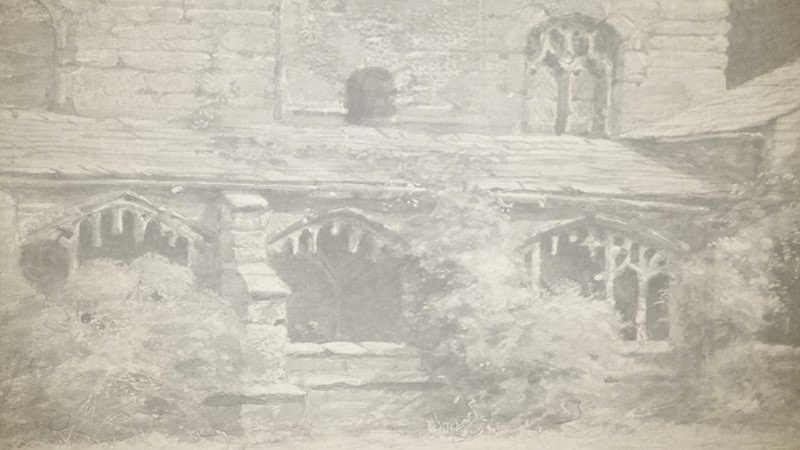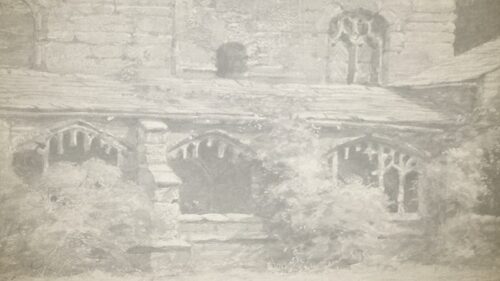
The Life And Ministry Of Henry Bulteel
The Seceders (1829-1869)—The Story Of A Spiritual Awakening As Told In The Letters Of Joseph Charles Philpot, M. A. (Fellow Of Worcester College, Oxford, 1827-35), And Of William Tiptaft, M. A. (Vicar Of Sutton Courtney, Berks, 1829-31):
Mr. Bulteel (then curate of St. Ebb’s parish in the city of Oxford) had for some years embraced the doctrines of grace, and preached them with much fervour of mind and strength of expression. This was a new sound at the learned university, and a thing almost unheard of, that a Fellow and tutor of one of the Colleges, for such he was when he first began to preach, should embrace so thoroughly, and above all proclaim so boldly, the obnoxious doctrines of the Calvinistic creed. His church was crowded with hearers, and among them were seen many of the university students, and now and then a master of arts, myself being one of them, some of whom became his attached and regular hearers. As a master of arts (for every ordained master of arts preaches once, according to his turn, before the University), it fell to Mr. Bulteel early in 1830 to preach before that learned body; and true to his principles he took for his text 1 Cor. 2:12, from which he delivered a bold and faithful discourse, distinctly and dearly advocating the doctrines of grace. I need hardly say that to wake up the echoes of St. Mary’s Church, and rouse from their calm repose the minds of proctors, doctors, heads of houses, learned professors, and the grand assembly of university dons, who, besides the general gathering of arts and the undergraduate students, form the congregation, by bold statements of Calvinistic doctrine was no slight task to accomplish. But Mr. Bulteel preached an able and faithful sermon, and though he contended strongly for free-grace, as opposed to free-will, yet kept clear of any offensive statements. The sermon, however, caused much sensation, and Mr. Bulteel felt himself called upon to publish it. This called forth a reply from Dr. Burton, the chaplain to the bishop, producing a controversy between them which made some little noise at the time, but which it is not worth while further to notice. [“Dr. Burton’s reply to Bulteel,” we read elsewhere, “had shown him to be excitable and not always able to command himself.” Dr. Burton had succeeded Bishop Lloyd as Regius Professor of Divinity at Oxford, but died in 1836, under circumstances which that genial gossip, the Rev. T. Mozley, to whom I owe the above quotation thus relates: “Feeling not quite well, Dr. Burton went to Ewelme for a few days’ rest, took a walk in the fields, met a dissenting farmer, who told him—(a Regius Professor of Divinity)—that he did not preach the gospel, had a warm argument with him, came home in a fever and died in a few days.”(Reminiscences, Vol. I., p. 350.)]
Of course all this deeply interested our friend (William Tiptaft), and led to a closer acquaintance with Mr. Bulteel, which soon began to bear fruit. They were both young and healthy, vigorous in mind and body, and full of zeal and warmth, which were roused instead of being damped by the general opposition made to their views and preaching. W. Tiptaft had not at that time that wisdom, discernment and caution which he manifested in after years and as the doctrines of grace had taken such possession of his soul, his heart and house were alike open to all who advocated them, and were willing to make sacrifices for them. Mr. Bulteel was a Devonshire man and being of a good family had many connections and friends in that county. He therefore proposed to his friend that they should go down together on a kind of preaching excursion, not confining themselves to Church of England places of worship, but to proclaim the Gospel wherever a door might be opened in chapels, rooms, private houses, or the open air. Our friend’s mind at that time had become much shaken about the Church of England, and this made him all the more willing to accompany Mr. Bulteel, and take a part with him. Indeed, I am not sure whether the original proposal did not emanate from him.
This preaching tour is so fully described in William Tiptaft’s Letters (XIII and XIV), that it need not detain us.
The Bishop of Salisbury, his diocesan, though ready enough, as we shall see later on, to threaten him with prosecution after he had left the Church, now made no sign. But Henry Bulteel had his license withdrawn by his Bishop, and, refusing to be silenced, after preaching for a time in his own garden, built himself a chapel behind Pembroke College, Oxford.
It is all rather pathetic, to read of these ardent, but inexperienced young enthusiasts going forth full of zeal to convert the world, soon coming up against the world’s massive scepticism or indifference, and in the end falling back upon an obscure ministry to a handful of humble, but spiritually-minded souls. They learnt from their efforts at least as much as they taught. The lack of adequate response to their passionate appeals drove them more and more firmly to believe in the existence of a chosen and predestined people, disposing them, like the prophet of old, to attribute their failure to God’s design. “Therefore they could not believe, because that Esaias said again, He hath blinded their eyes, and hardened their heart; that they should not see with their eyes, nor understand with their heart, and be converted, and I should heal them” (John 12:39,40). In some such strain do we find William Tiptaft writing when the first excitement of the tour was over, “We have found the spirit of the world reigning much wherever we have been. All seem to be seeking their own. There are very few that have grace enough to come out of a world lying in wickedness. The Dissenters generally are very worldly.”
At one time he seems to have cherished the hope that many more clergy would follow him in the secession on which he was now almost resolved, and that the Church of England would totter to its fall. In fact only a few months later Arnold of Rugby was to enunciate his well-known verdict, “The Church as it now stands no human power can save.” But this would have brought small comfort to William Tiptaft, unless accompanied with a general religious revival. Disillusion followed on disillusion, till we find him exclaiming in despair, that true religion seemed nearly as scarce as snowballs in summer or roses at Christmas.
But his worst disappointment, in which my father also shared, a disappointment he could hardly bear to speak of, was the defection of his own familiar friend and fellow-labourer, on whom the meagre harvest of the tour had produced calamitous results (see Letter XX). As late as September, 1831, Bulteel had stayed with him, and preached in Abingdon market-place to two or three thousand people. Subsequently he had gone up to London, fallen under the spell of Edward Irving, then at the height of his popularity, and been persuaded not only that all men might be pardoned, but were already pardoned, and that Christ had only been kept from sin by the power of the Holy Spirit. “Such horrid doctrine,” writes my father, “broke off all intercourse” between the former friends. Mr. Bulteel afterwards renounced his errors and confessed that he had been misled, but we hear no more of him. The rupture was complete.
Henry Bulteel (1800-1866) was a High Calvinist preacher. He started his ministerial duties as an Anglican curate in Oxford, nurturing high views of sovereign grace. Upon leaving the established Church, he organized a nonconformist congregation, but fell victim to the false teachings of Edward Irving. He thereafter denounced those teachings, setting up a Strict and Particular Baptist chapel in Oxford.




